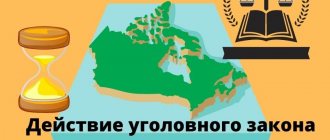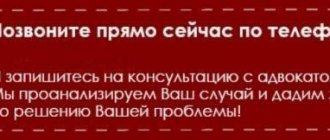Commentary to Art. 9 of the Criminal Code
1. A criminal law that has entered into force in accordance with the established procedure is valid, unless its validity period has expired or it has not been repealed or amended by another law.
2. Laws are subject to official publication within seven days after the day they are signed by the President of the Russian Federation. Official publication is considered the first publication of the full text of the law in the Parliamentary Gazette, the Rossiyskaya Gazeta, the Collection of Legislation of the Russian Federation, or the first posting on the official Internet portal of legal information (pravo.ru).
3. As a general rule, federal constitutional laws, federal laws, acts of the chambers of the Federal Assembly come into force simultaneously throughout the entire territory of Russia ten days after the day of their official publication. However, the law itself may establish a different procedure for its entry into force.
4. According to Part 2 of Art. 9 of the Criminal Code, the time of commission of a crime (in relation to which the applicable criminal law is established) should be considered the time of commission of a socially dangerous action (inaction), regardless of the time of the onset of consequences. This provision is universal, since not all elements of a crime include as a mandatory sign of the occurrence of consequences (such a sign is absent in formal and truncated elements).
5. For continuing and continuing crimes, the law in force at the time of their actual termination should be applied. The following grounds can serve as the end of a continuing crime: the will of the guilty person (turning himself in); actions of law enforcement agencies (detention of a person); other circumstances that exclude a legal obligation to act in a certain way (death of a disabled parent). In a continuing crime, the actual end is the moment of commission of the last of a set of identical acts.
Article 9 of the Criminal Code of the Russian Federation. The effect of criminal law over time
1. A criminal law that has entered into force in accordance with the established procedure is valid, unless its validity period has expired or it has not been repealed or amended by another law.
2. The procedure for the entry into force of the law is determined by Decree of the President of the Russian Federation of April 5, 1994 N 662 “On the procedure for publication and entry into force of Federal laws” <1> and Federal Law of June 14, 1994 N 5-FZ “On the procedure for publication and the entry into force of federal constitutional laws, federal laws, acts of the chambers of the Federal Assembly" <2>. In accordance with the said Law, the date of adoption of a federal law is considered to be the day of its adoption by the State Duma in its final version. The date of adoption of the Criminal Code is May 24, 1996, when the State Duma adopted it in the last reading.
———————————
<1> RG. 1994. April 6 <2> Northwestern Russian Federation. 1994. N 8. Art. 801.
3. In accordance with Part 3 of Art. 15 of the Constitution of the Russian Federation, laws are subject to official publication; unpublished laws are not applied.
As a general rule, laws come into force simultaneously throughout the entire territory of the Russian Federation 10 days after the day of their official publication. However, the legislator himself may establish a different procedure for their entry into force (for example, the date of entry is determined in the law on the procedure for introducing the law into force; the law itself contains an indication that it begins to operate from the moment of its publication; comes into force subject to certain conditions) .
4. The loss of legal force by a criminal law means that it ceases to have effect and its provisions do not apply to those criminal acts that were committed after the law lost its force.
The criminal law becomes invalid in the event of:
- cancellation by the legislator;
- changes in the conditions and circumstances in connection with which it was accepted;
- replacement with a new law;
- expiration of the deadlines specified therein;
- recognition by the Constitutional Court of the Russian Federation as not complying with the Constitution of the Russian Federation.
5. According to Part 2 of Art. 9, the time of commission of a crime should be considered the time of commission of a socially dangerous action (inaction), regardless of the time of the onset of consequences. This provision is universal, since not all elements of a crime include the occurrence of consequences as a mandatory feature. At the same time, regardless of the structure of the crime, each crime is committed in the form of an action or inaction, to which the law assigns the time of commission of the crime.
Second commentary to Art. 9 of the Criminal Code of the Russian Federation
1. A criminal law that has entered into force in accordance with the established procedure is valid, unless its validity period has expired or it has not been repealed or amended by other laws.
The procedure for the entry into force of the law is determined by Decree of the President of the Russian Federation dated 04/05/1994 No. 662 “On the procedure for publication and entry into force of federal laws” (as amended on April 1, 2015) and the Federal Law of 06/14/1994
No. 5-FZ “On the procedure for publication and entry into force of federal constitutional laws, federal laws, acts of the chambers of the Federal Assembly” (as amended on July 1, 2017).
As a general rule, a law comes into force simultaneously throughout the entire territory of the Russian Federation ten days after the day of its official publication, unless the law itself or a special act of the Chamber of the Federal Assembly provides for a different procedure for putting the law into effect.
The criminal law loses force as a result of: its repeal; replacement by another law; expiration of the period specified in the law itself; changes in the circumstances that led to the adoption of this law.
The Constitutional Court of the Russian Federation may declare a law unconstitutional. In this regard, the law or its individual provisions lose force.
2. The time of commission of a crime is recognized as the time of its socially dangerous act, regardless of the time of the onset of socially dangerous consequences. Responsibility for a continuing crime occurs according to the norm in force at the time of the commission of the initial act of this offense; for the continued - according to the norm in force at the time of suppression of the crime or at the time of the last of the actions by the offender himself; when committing a crime in complicity - according to the norm in force at the time the perpetrator fulfilled the objective side of the crime; if the crime consists of two actions that together form the objective side - according to the norm in force at the time the last of the actions was committed.
Judicial practice under Article 9 of the Criminal Code of the Russian Federation
Resolution of the Presidium of the Supreme Court of the Russian Federation dated May 16, 2018 N 39P18
Meanwhile, in accordance with Part 1 of Art. Under the Criminal Code of the Russian Federation, crime and the punishability of an act are determined by the criminal law in force at the time the act was committed. According to Art. The Criminal Code of the Russian Federation (as amended by the Federal Law of June 13, 1996 N 63-FZ), in force at the time of the commission of the above criminal acts, recognized as a set of crimes the commission of two or more crimes provided for by various articles or parts of an article of the Criminal Code of the Russian Federation, in no one of which the person was not convicted.
Appeal ruling of the Judicial Collegium for Military Personnel Cases of the Supreme Court of the Russian Federation dated June 27, 2018 N 201-APU18-21
In support of the complaints, they point out that the court’s conclusions about Abdymanap’s participation in the activities of a terrorist organization up to his arrest, i.e. until March 28, 2022, are not supported by the evidence examined. In particular, witnesses T. and V. confirmed only the fact of Abdymanap’s participation in the activities of a terrorist organization in 2014 - 2015, including in the meeting that took place on January 25, 2015. Given such data, the court had to be guided by the provisions of Art. Art. , Criminal Code of the Russian Federation and qualify Abdymanap’s actions under Part 2 of Art. 205.5 of the Criminal Code of the Russian Federation (as amended by Federal Law No. 130-FZ of May 5, 2014), within the sanction of which to impose a punishment on him.
Appeal ruling of the Judicial Collegium for Military Personnel Cases of the Supreme Court of the Russian Federation dated June 28, 2018 N 201-APU18-22
Nazarov's involvement of citizen N. in committing crimes under Art. Art. 205, 205.5 and 208 of the Criminal Code of the Russian Federation, correctly and in strict accordance with the criminal law, qualified by the district military court under Part 1 of Art. 205.1 of the Criminal Code of the Russian Federation (as amended by Federal Law No. 375-FZ of July 6, 2016). In this case, the court correctly applied the provisions of Art. The Criminal Code of the Russian Federation on the operation of the criminal law in time, qualifying Nazarov’s illegal actions under the criminal law that was in force at the time he committed a criminal and punishable act.
Determination of the Judicial Collegium for Criminal Cases of the Supreme Court of the Russian Federation dated June 20, 2018 N 46-UD18-22
In accordance with Part 1 of Art. Under the Criminal Code of the Russian Federation, crime and the punishability of an act are determined by the criminal law in force at the time the act was committed. According to Art. The Criminal Code of the Russian Federation has retroactive effect only on a criminal law that eliminates the criminality of an act, mitigates punishment or otherwise improves the position of the person who committed the crime.
Appeal ruling of the Judicial Collegium for Criminal Cases of the Supreme Court of the Russian Federation dated September 14, 2018 N 4-APU18-28SP
At the same time, based on the provisions of Art. The Criminal Code of the Russian Federation, which establishes the operation of the criminal law in time, by virtue of which the criminality and punishability of an act are determined by the criminal law in force at the time of the commission of this act, is subject to exclusion of the court's reference to the Federal Law of December 7, 2011 when qualifying attempted fraud against B. Federal Law of December 7, 2011 N 420-FZ, which, apparently, the court had in mind, any changes to Part 4 of Art. 159 of the Criminal Code of the Russian Federation was not introduced. Until the adoption of the Federal Law of November 29, 2012 N 207-FZ, this part of the article was in force as amended by the Federal Laws of December 27, 2009 N 377-FZ, of March 7, 2011 N 26-FZ, and therefore according to it in In this case, Fadeeva and Vasilyev were subject to conviction, having committed the crime in the period before June 26, 2012, when it was suppressed as a result of the detection of falsified documents by the Federal Service for State Registration, Cadastre and Cartography in Moscow.
Cassation ruling of the Judicial Collegium for Criminal Cases of the Supreme Court of the Russian Federation dated October 11, 2018 N 83-UD18-15
At the same time, the court of cassation found the arguments of the convicts about the need to reclassify all crimes they committed to this criminal law as untenable and based on an incorrect interpretation of the law, since, as the court indicated in the cassation ruling, the actions of convicts with certificates Z.G.K.M. , S. and A. took place before the introduction of Art. 159.2 in the Criminal Code of the Russian Federation, which, by virtue of Art. The Criminal Code of the Russian Federation prevented the application of this law.
Appeal ruling of the Judicial Collegium for Criminal Cases of the Supreme Court of the Russian Federation dated 02/06/2019 N 22-APU18-2SP
The presiding judge did not correctly qualify the actions of S.E. Vataev. and according to paragraph “c” of Part 2 of Art. 115 of the Criminal Code of the Russian Federation, as intentional infliction of minor harm to health, committed with the use of weapons or objects used as weapons, since by virtue of Part 1 of Art. Under the Criminal Code of the Russian Federation, crime and the punishability of an act are determined by the criminal law in force at the time the act was committed. The crimes against O. were committed on February 23, 2014, while paragraph “c” of Part 2 of Art. 115 of the Criminal Code of the Russian Federation was put into effect by Federal Law of July 21, 2014 N 227-FZ, that is, after the commission of a crime.
Appeal ruling of the Judicial Collegium for Military Personnel Cases of the Supreme Court of the Russian Federation dated January 24, 2019 N 201-APU18-55
In accordance with Art. Under the Criminal Code of the Russian Federation, crime and the punishability of an act are determined by the criminal law in force at the time the act was committed. The time of commission of a crime is the time of commission of a socially dangerous action (inaction), regardless of the time of the onset of consequences. Based on the evidence examined, the court found that the crime provided for in Part 2 of Art. 205.5 of the Criminal Code of the Russian Federation, committed by Tukiyev in the period from May to September 2016, by Gazimagomedov - from August to September 2016, and therefore their actions are correctly qualified under the criminal law in force at the time of the commission of this act. The criminal law, which worsens the situation of the convicted Tukiev and Gazimagomedov, was not applied by the court.
Appeal ruling of the Judicial Collegium for Military Personnel Cases of the Supreme Court of the Russian Federation dated March 19, 2019 N 201-APU19-3
According to Part 1 of Art. Under the Criminal Code of the Russian Federation, crime and the punishability of an act are determined by the criminal law in force at the time the act was committed. The court established that requests for the transfer of funds were received by D.L. Khomidov. at significant intervals to various electronic account numbers, to various persons and after directly contacting the convicted brother.
Appeal ruling of the Judicial Collegium for Criminal Cases of the Supreme Court of the Russian Federation dated February 21, 2019 N 69-APU19-3
Considering that the criminal law (Part 1 of Art. of the Criminal Code of the RSFSR), which was in force at the time Sarkarov committed a particularly serious crime, established more lenient rules for sentencing for a set of crimes, providing for the possibility of absorbing a less severe punishment with a more severe one, regardless of the severity of the crime, and determined the lesser the limit of punishment that could be imposed in totality, in contrast to the criminal law in force at the time of the verdict, and also taking into account that the crime provided for in Part 3 of Art. 327 of the Criminal Code of the Russian Federation, belongs to the category of minor severity; when assigning punishment to Sarkarov for a set of crimes, by virtue of the provisions of the articles and the Criminal Code of the Russian Federation, Part 1 of Art. Criminal Code of the RSFSR.
Cassation ruling of the Judicial Collegium for Criminal Cases of the Supreme Court of the Russian Federation dated June 13, 2019 N 20-UD19-9
In accordance with Part 1 of Art. Under the Criminal Code of the Russian Federation, crime and the punishability of an act are determined by the criminal law in force at the time the act was committed. These legal requirements were not taken into account by the court in this case. From the materials of the criminal case it follows that the court of first instance recognized Omarov O.R. guilty of the fact that he, being the director of Mayak LLC, committed fraud in the period from October 23, 2012 to September 2013, that is, theft by deception of the property of JSC "..." on an especially large scale, and qualified the actions of the convicted person under Part. 4 tbsp. 159 of the Criminal Code of the Russian Federation.
Judicial practice: sentences and punishment under Art. 9 of the Criminal Code of the Russian Federation
- Decision of the Supreme Court: Determination N 203-APU17-21... THE SUPREME COURT OF THE RUSSIAN FEDERATION Case No. 203-APU17-21 APPEAL DECISION Moscow August 31, 2022 Judicial Collegium for Military Personnel of the Supreme...
- Cassation ruling of the Judicial Collegium on... THE SUPREME COURT OF THE RUSSIAN FEDERATION CASSATION DECISION dated October 11, 2022 N 83-UD18-15 Judicial Collegium on criminal cases of the Supreme Court...
- Decision of the Supreme Court: Resolution No. 310P13 dated... DECISION OF THE PRESIDIUM OF THE SUPREME COURT OF THE RUSSIAN FEDERATION Case No. 310-P13 Moscow January 23, 2014 Presidium of the Supreme Court of the Russian Federation...
- Resolution of the Plenum of the Supreme Court of the Russian Federation dated... PLENARY OF THE SUPREME COURT OF THE RUSSIAN FEDERATION DECISION dated December 27, 2002 N 29 ON JUDICIAL PRACTICE IN CASES OF THEFT,...
- Ruling of the Constitutional Court of the Russian Federation dated March 13, 2018 N 578-O THE CONSTITUTIONAL COURT OF THE RUSSIAN FEDERATION RULING dated March 13, 2018 N 578-O ON THE REFUSAL TO ACCEPT A CITIZEN’S COMPLAINT FOR CONSIDERATION...
- Resolution of the Plenum of the Supreme Court of the Russian Federation dated... PLENARY OF THE SUPREME COURT OF THE RUSSIAN FEDERATION DECISION of November 15, 2016 N 48 ON THE PRACTICE OF APPLICATION BY COURTS OF LEGISLATION GOVERNING FEATURES...
- Ruling of the ECtHR dated 02/14/2017 EUROPEAN COURT OF HUMAN RIGHTS THIRD SECTION CASE “MASLOVA VS. RUSSIAN FEDERATION” (Complaint No. 15980/12) JUDGMENT…
- Decision of the Supreme Court: Determination No. 38-АПУ17-2 dated... THE SUPREME COURT OF THE RUSSIAN FEDERATION No. 38-АПУ17-2 APPEAL DECISION Moscow March 1, 2022 Judicial Collegium for Criminal Cases of the Supreme Court...
- Decision of the Supreme Court: Determination No. 72-АПУ17-1 dated... THE SUPREME COURT OF THE RUSSIAN FEDERATION Case No. 72-АПУ17-1 APPEAL DECISION Moscow February 2, 2022 Judicial Collegium for Criminal Cases...
- Appeal ruling of the Supreme Court of the Russian Federation dated... SUPREME COURT OF THE RUSSIAN FEDERATION APPEAL DECISION dated October 3, 2022 N 4-APU18-32SP Judicial Collegium for Criminal Cases of the Supreme Court...




